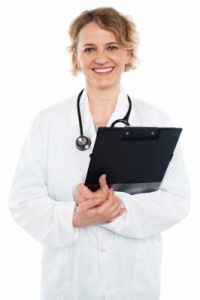
The longer we have hepatitis B, the higher our risk of developing liver cancer. With every decade of life, our liver cancer risk increases 2.7-times, according to a report on Viral Hepatitis in the Elderly published in the American Journal of Gastroenterology.
But current medical guidelines don’t spell out exactly when liver cancer testing should begin in many hepatitis B patients who don’t have liver damage (cirrhosis) or a family history of liver cancer, and are not of Asian or African descent.
Age is clearly an important factor when it comes to liver cancer, “… but current guidelines only provide age-specific recommendations for (liver cancer) surveillance in hepatitis B carriers of Asian ethnicity (men over age 40 and women over age 50),” a team of University of Miami and Veterans Affairs researchers wrote in the journal article. Continue reading "Your Doctor Not Screening You for Liver Cancer? Time for a Talk"

